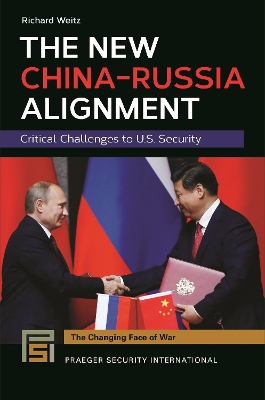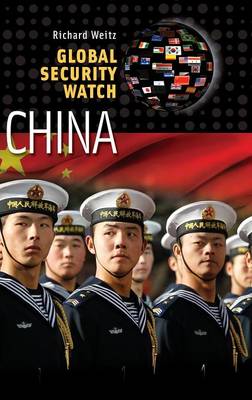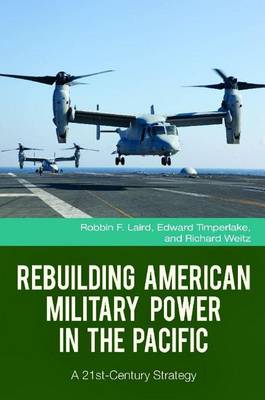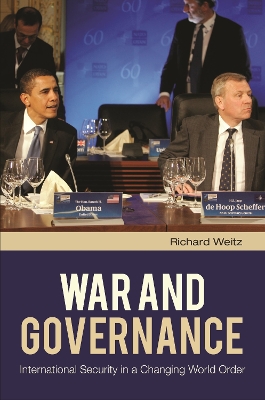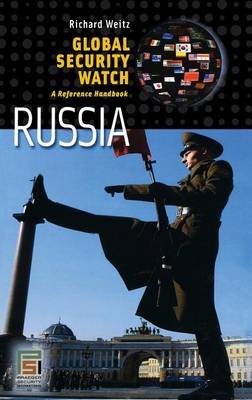Praeger Security International
5 total works
This volume identifies the main drivers of the current Sino-Russian relationship, assesses whether-and under what conditions-China and Russia would cooperate more extensively and effectively against American interests, and recommends U.S. policies that could prevent such an outcome.
Most experts argue that economic interdependence, nuclear weapons, and the U.S. contribution to maintaining the global commons mean that China and Russia will generally accept U.S. military superiority and U.S. political supremacy in managing global affairs. An agreement between these two powerful countries to work against the United States, however, would greatly increase its vulnerabilities. Relations between the governments of China and Russia with the U.S. have worsened in past years. Identifying the various pathways, events, and political, economic, and military drivers that could shape the dynamics of the China-Russia relationship is of critical importance to U.S. security.
This book examines the sources, nuances, and manifestations of the ongoing Sino-Russian relationship in order to recommend strategy and policy that could work to U.S. advantage. Written by an author who traveled extensively in both countries in order to conduct research and expert interviews for the work, the book covers the latest developments to include the major changes in Chinese foreign policy under President Xi Jinping and ongoing relations with Russian president Vladimir Putin.
- Identifies the challenges Americans would confront if Russia and China continue to align more closely together against the United States and its allies and what interests would be most affected
- Examines the variables that have most affected ties between China and Russia and could plausibly continue to affect the Sino-Russian relationship
- Addresses key geographic regions, countries, and critical issues to assess the areas of greatest importance for the China-Russia relationship as well as for U.S. foreign policy
- Describes how the United States now faces a more complicated challenge than even during the Cold War since Russia and China possess a diverse, complementary, and historically unique range of assets
This book presents a comprehensive overview of China's main foreign and defense policies, providing students, policy makers, and general readers with an up-to-date assessment of this most important country.
Global Security Watch-China presents a comprehensive overview of the main foreign and defense policies of the People's Republic of China, emphasizing the political-military developments in the modern era since the 1989 Tiananmen Square incident. It provides a historical overview in the first chapter, followed by information on the domestic factors that affect Chinese national security, such as economics, society, and politics; China's external objectives; its global energy strategy; and its defense policies and security objectives.
Drawing upon a wide variety of domestic and foreign primary sources, the work details China's policies and its relationships with the United States, Europe, the Middle East, Latin America, Asia, and Eurasia. It includes biographical sketches of select individuals of importance to modern Chinese history, such as Mao Zedong and Deng Xiaoping. Appropriate for audiences ranging from university students to policy makers to general readers, this book is an excellent resource for academic libraries and suitable as a textbook for courses on contemporary Chinese politics and international relations.
- A chronology of events
- A collection of key documents
- An annotated bibliography of recommended current sources
Rebuilding American Military Power in the Pacific
by Robbin Laird, Edward Timperlake, and Richard Weitz
This volume examines how the U.S. military must rebuild in the wake of Iraq/Afghanistan, and refocus its power projection to face the new challenges emerging in the Pacific and with China.
Rebuilding American Military Power in the Pacific: A 21st-Century Strategy provides an all-encompassing look at the challenges facing the United States in shaping a 21st-century Pacific strategy: dealing with the growing Chinese colossus, the unpredictable nuclear challenge presented by North Korea, the dynamic of the Arctic opening, and maintaining the security of the conveyor belt of goods and services in the Pacific. Can the United States successfully train and prepare for the 21st century, and break free from the mindset that determined its strategies in the previous century? The authors of the work explain why a carefully considered, fully modernized Pacific strategy is a key element for the evolution of American military power-and why shaping an effective air and maritime strategy in the Pacific as well as globally is the crucial challenge facing the U.S. military and the policy community. Written by authors with significant access to the media, think tanks, and high-level politicians, the book provides an insider's look at how American military leaders are building out relevant capabilities in the Pacific to defend America and its allies, and it contains extensive interviews with those leaders.
An insightful and expert assessment examines how best to end-and avert-wars.
How do we avoid war? To arrive at an answer, master analyst Richard Weitz explores the ways nations, international organizations, and individuals have sought to bring order to an inherently disorderly phenomenon-potential and actual violent conflict among organized political entities.
Specifically, War and Governance: International Security in a Changing World Order analyzes a number of critical issues such as whether regional security institutions have distinct advantages and liabilities in promoting international security, as compared with universal organizations like the United Nations. Other important questions are addressed, as well. How will international organizations, such as the UN, EU, and NATO, change the nature of war in the 21st century-and be changed by it? What role might less formal institutions and nongovernmental organizations play in peacemaking? Will the nation-state remain the most important international security actor? The book ends with a gap analysis that identifies incongruities between international needs and capabilities-and suggests ways to overcome them.
- Short case studies
- A survey of key institutions and sub-organizations
- Maps
This book offers an expert analysis of Russia's foreign and military defense policies since the Federation was established in the aftermath of the collapse of the Soviet Union.
To help readers understand the current state of this crucially important country, Global Security Watch-Russia: A Reference Handbook provides a comprehensive overview of the main foreign and defense policies of the Russian Federation.
Global Security Watch-Russia focuses on political-military developments in the nation that emerged in the aftermath of the Soviet Union's collapse in December 1991. The book looks at a variety of factors that characterize Russia's position in world security matters, such as its leading position as an arms exporter and its still-overwhelming nuclear capability. Coverage includes critical recent events, such as the growing alienation between Russia and the West, the August 2008 Georgian War, and the effects of the global financial crisis on Russia's vulnerable economy.
- Contains excerpts from leaders' key speeches as well as Russia's seminal foreign policy and defense concepts
- Includes a comprehensive chronology, in essay format, of political-military developments in Russia since 1991
